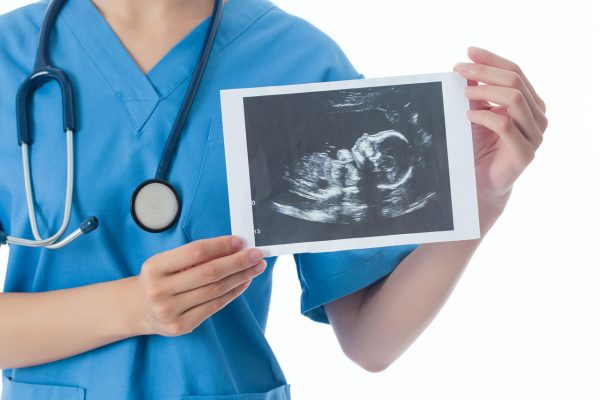
Important Tips for Pregnant Women: Prevention of Fetal Malformations
Important Tips for Pregnant Women: Prevention of Fetal Malformations
To understand this article, we must understand that there are two causes of fetal malformations
The first type: a type that cannot be prevented because its causes are unknown and remain unknown, as is the case in many diseases in medicine.
The second type: a type that can be prevented because its causes have become known.
And the second type is the one that concerns us and it is the one that we will talk about in some kind of detail.
Preventable causes of fetal malformations
There are several factors that may contribute – but not necessarily – in increasing the rates and likelihood of having a child with malformations, including the following:
- The old age of the pregnant woman (over thirty-eight and the percentages increase whenever the woman is in the forties)
- Taking some medications that have been proven to cause fetal malformations, and this is a long list that we may mention soon in a special article on the site, including Warfarin, Tetracycline, Valium, and Anti-Convalsants, for example:
- Warfarin: has been associated with hypoplastic nasal structure and skeletal muscle deformities.
- Anti-Convalsants: have been associated with Cleft Lip, Cleft Palate, Congenital Heart Deformities, CNS Anomalies and Skeletal Muscle Deformities.
- Valium: has been associated with cleft palate.
- Tetracycline: has been associated with stained teeth and depressed skeletal growth.
As a general rule, whenever the pregnant woman can avoid any undesirable drugs, it would be better and more protective of the chances of giving birth to a malformed fetus, but if it is necessary to take medicines, let this be through the medical prescription of doctors only.
- Problems and deficiencies of nutrition such as:
- Deprivation of folic acid (causes neural tube defects such as spina bifida disease or cleft back), to avoid all neural tube defects caused by folic acid deficiency, women are advised to take folic acid tablets before marriage for a month until the sixteenth week of pregnancy.
- As well as vitamin A deficiency: where it has been observed that vitamin A deficiency was associated with fetal abnormalities.
- Calcium deficiency: It has been observed that women’s adequate and abundant calcium intake during pregnancy was associated with reducing birth problems.
- Multi-Vitamins: It has been observed that getting the ideal amount of vitamins reduces deformities of the cleft lips and cleft palate.
- Exposure to X-rays or any other radiation source, especially in the first month of pregnancy, and this can be completely avoided as ultrasound plays the same role as radiation and X-rays and more accurately and clearly.
- Exposure to some diseases such as:
- Rubella infection: The rubella virus can cross the placenta during 16 weeks from pregnancy, causing severe imbalance, especially if the infection occurs in the period of 8‑10 weeks, where heart abnormalities, mental retardation, deafness, and blindness occur.
- Therefore, it should be ensured that women get the rubella vaccine and give the vaccine to those who did not get it, while avoiding pregnancy for 2-3 months after taking the rubella vaccine.
- AIDS: The transmission of AIDS to the fetus has a high rate of up to 20-50% unless the mother is under treatment, and it is possible to reduce the rates of transmission to the fetus to 3% if early attention is given to the matter and the application of therapeutic and preventive protocols using the treatment of AZT.
- Syphilis: Although it disappeared, but just to obtain the scientific information, we say that syphilis causes many problems for the fetus, including problems in the central nervous system, blindness, nasal atrophy, and organ atrophy.
- Toxoplasma (feline disease): Toxoplasma infection causes enlarging the liver and spleen of the fetus, retinal infections and brain cysts that later lead to epilepsy and mental retardation, so women are advised not to deal with cats and their litters, and this infection can be cured well by using pyrimethamine and sulfonamide.
- Cytomegalo virus infection: infection with this virus is usually caught in childhood, the disease is usually mild, but it can later lead to severe inflammation of the liver. If a mother was infected with this virus in childhood, there is a 10% chance that her fetus will develop microcephaly, deafness, cirrhosis, anemia, pneumonia, and mental retardation.
- Lack of control over diabetes: The lack of control over blood sugar causes health problems for the pregnant mother and her newborn, as the coming baby is exposed by 5-8% to a number of abnormalities in the heart, muscles, neural tube and pelvic bones, and the rate of death inside the uterus increases as well as the birth of dead fetuses increases by three times the usual rates, and the chances of the newborn child entering into respiratory crises increase by 50%, as well as the chances of the newborn child entering into hypoglycemic seizures increase by 50%, in addition to an increase in the risk of jaundice or yellows by 16%
- Consanguinity: In the case that the premarital examination, which is recommended by all health authorities globally, was not carried out, many scientific researches conducted on consanguineous marriage have indicated that a number of disabilities in children resulted from marriage between relative parents without conducting a medical examination for the couple before marriage, where the chance is greater for the couple of relatives to carry recessive genetic traits when each of the parents is a carrier of the trait causing the disease, the general rule in terms of Sharia and medicine is not against consanguinity, but advises to conduct a medical examination before marriage to deal correctly and at the right time with any possibilities.
- Smoking during pregnancy: Smoking is the most important and frequent cause of fetal mortality that can be prevented, and evidence has been established that smoking is associated with intrauterine fetal mortality to the degree that the term “fetal syndrome and smoking” has been considered common and known in the medical community since 1995, in addition to intrauterine fetal mortality, studies have shown that smoking reduces the number of sperm in men and causes many respiratory disabilities for the newborn child.
- Alcohol consumption: It is also called Fetal Alcohol Syndrome, where alcohol abuse is associated with mental and physical retardation of the newborn, as research has proven the link between alcohol and poor quantity and quality of sperm, and European scientific journals say that there is no safe limit for alcohol abuse, and we in our Sharia where God has relieved us from this trouble in the search for a safe limit where we have no safe limit, but all alcohol is forbidden, but alcohol is a major sin.
- Drug abuse such as heroin, cocaine, marijuana and inhalation of petroleum compounds, as drugs have been associated with early miscarriage, low sperm count, poor sperm quality, baby’s kidney abnormalities, sleep disorders in the newborn child and hepatitis.
- Despite conflicting opinions about the effect of caffeine (found in coffee), consuming more than 8 cups a day was associated with percentages of miscarriage, premature births and fetal mortality.




